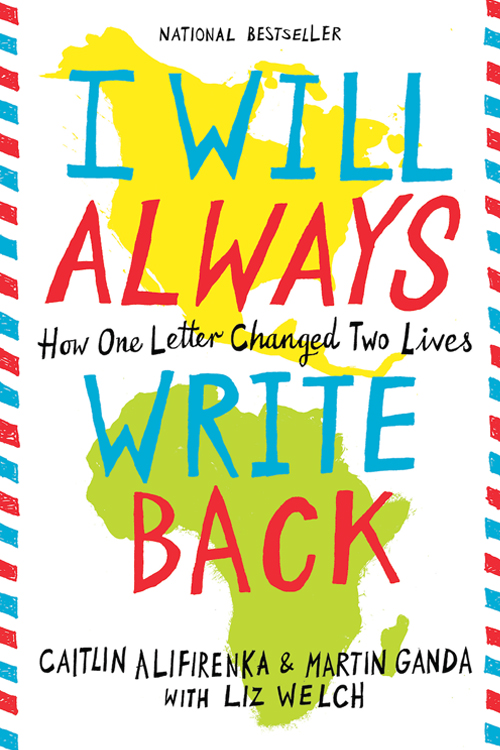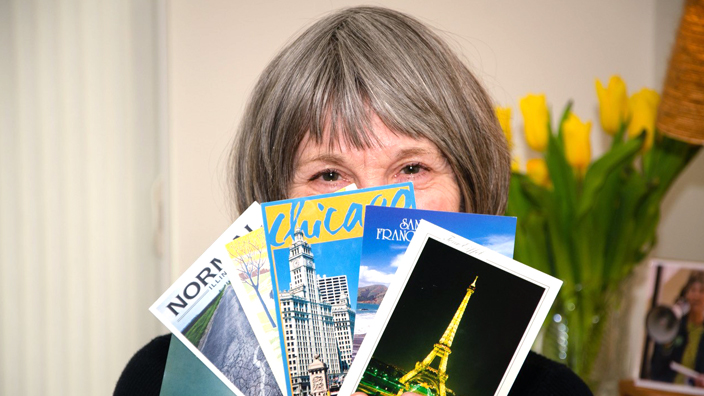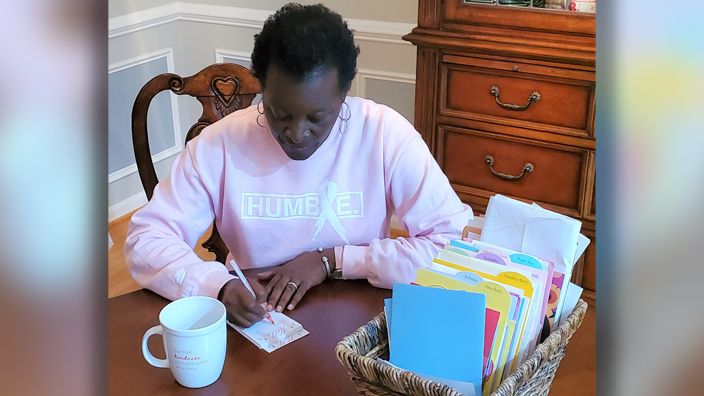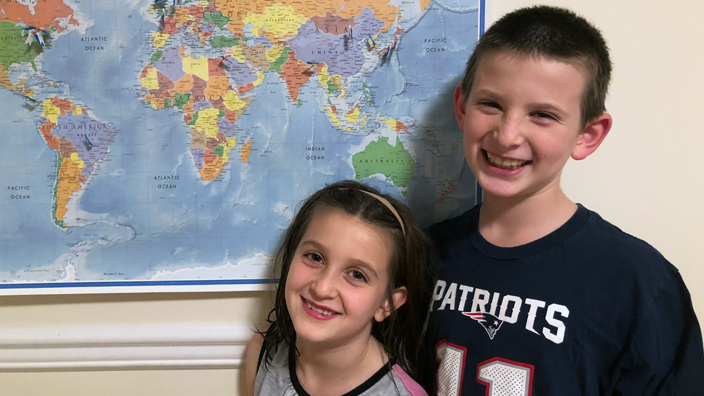Two longtime pen pals who wrote a New York Times bestseller about their friendship have embarked on a virtual tour of the nation’s classrooms to teach students about the value of letter writing and mail.
Caitlin Alifirenka and Martin Ganda, co-authors of “I Will Always Write Back” with Liz Welch, an award-winning journalist and memoirist, regularly speak to school groups virtually and in person, where they explain how one letter sparked their lifelong friendship.
“My heart is so unbelievably happy going to schools and talking to young adults,” Alifirenka said.
The friendship began in 1997, when Alifirenka, then a 12-year-old student in suburban Pennsylvania, was matched with Ganda, a 14-year-old student in Zimbabwe, during a classroom pen-pal project.
Her letters shared anecdotes of a quintessential American teenage experience and tales of her comfortable, middle-class life. His letters, while optimistic, painted a picture of extreme poverty as he and his family lived with another family in a one-room home.
Despite the disparity of their lives, the two students formed a bond through their exchange of letters, which regularly ended with the promise “I will always write back.”
Between one letter exchange, Alifirenka worried when she hadn’t heard from Ganda for an extended time.
Finally, she received a discarded ice-cream wrapper from him because paper had become too expensive for him to purchase. The wrapper shared the message that he had to leave school because his family couldn’t pay the fees.
Alifirenka then sent $20 she had earned babysitting. Ganda wrote in response that the $20 was “more money than my father made in several months” and that it had enabled him to resume his studies.
His letters were eye-opening for Alifirenka, who said she came to appreciate how privileged she was and how hard parents work to provide for their children.
“I always tell people: We’re so fortunate to have the opportunity to get our mail. I’m grateful to our mail carriers in the U.S. that we can rely on them and know the mail is coming, which is something we take for granted,” she said, adding that this wasn’t the case for Ganda.
To receive mail was quite expensive on his end in Zimbabwe, where customers must pay to both send and receive cards, letters and packages.
Alifirenka, who works as an emergency room nurse outside Philadelphia, where she lives with her husband and daughters, is especially appreciative of Postal Service workers during the coronavirus pandemic.
Ganda lives in New York City and runs his own nonprofit foundation — Seeds of Africa — to help impoverished students like himself in his hometown of Mutare, Zimbabwe.
These days, the two friends mostly email and text one another, although Ganda writes letters to Alifirenka’s daughters, who refer to him as “Uncle Marty.”
During their virtual appearances, the pen-pal pair explain how their friendship began through the mail and continued when Ganda moved to the United States, where he received degrees from Villanova University and Duke University.
They also emphasize the message that kindness is contagious.
“I’d like to thank everyone who shares and supports our story,” said Ganda. “Helping us share our message of kindness can truly change the world. One small act of kindness makes big waves around the world.”
Many young adults have written to the duo that they felt inspired to contribute to communities in need after reading their book. The authors always write them back.
“That is the greatest reward, knowing that kids have taken our message and are doing small life-changing things,” Alifirenka said.
Share your feedback at uspslink@usps.gov. Your comments could be included in the “Mailbag” column.



